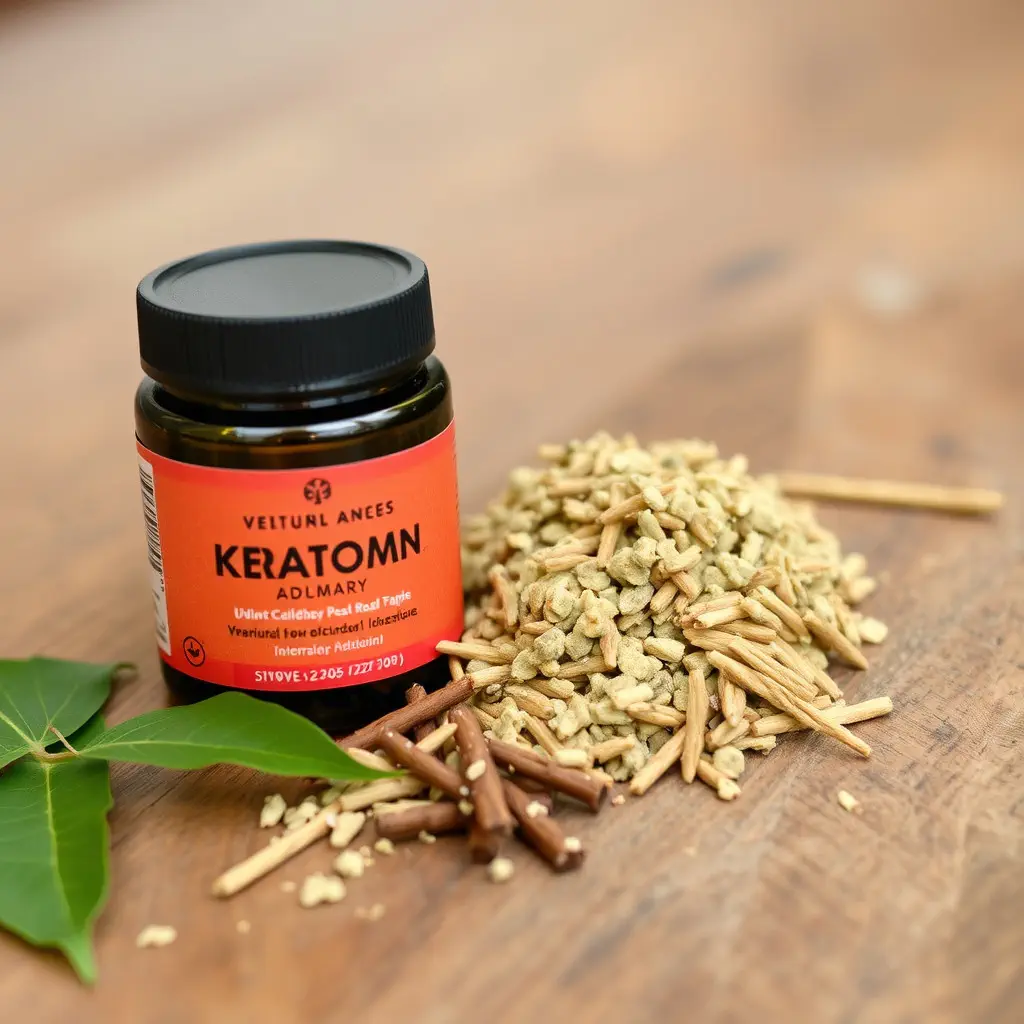Kratom's legal status in Michigan as of early 2023 classifies it as a legal substance with age and vendor regulations overseen by the state's Department of Agriculture and Rural Development. Users should be aware that while kratom is not explicitly federally illegal, its future regulation remains uncertain following past DEA efforts to ban it. It is crucial for individuals to follow state laws, including starting with low doses to assess personal sensitivity and effects, and choosing strains like Bali, Maeng Da, or Red Vein for their relaxing properties. For safety, consumers should procure kratom from reliable sources with verified lab test results. Regular liver function monitoring and a comprehensive health regimen that includes therapy, exercise, and proper nutrition are recommended. It is essential to consult healthcare professionals before using kratom due to its potential interactions with other substances and effects on health, especially for those with pre-existing conditions or taking other medications. Staying informed about the evolving legal status of kratom in Michigan is key for responsible use and compliance with local laws.
Exploring the intersection of natural wellness and mental health, this article delves into the potential of kratom supplements as a means to alleviate stress and anxiety. With a focus on its legal status in Michigan, we’ll unravel how kratom might serve as a therapeutic aid for those seeking relief. From understanding its role in managing stress and anxiety, to safely integrating it into daily life, readers will gain insights into the proper usage of kratom strains and dosages within the legal framework set forth by Michigan state laws. Is kratom legal in Michigan? This article aims to provide clarity and guidance for those considering this natural approach to well-being.
- Understanding Kratom's Role in Stress and Anxiety Management: An Overview of Its Legal Status in Michigan
- Exploring the Therapeutic Properties of Kratom for Stress Relief: How It Works and Potential Benefits
- Integrating Kratom into Your Lifestyle Safely and Legally: Dosage, Strains, and Best Practices in Michigan
Understanding Kratom's Role in Stress and Anxiety Management: An Overview of Its Legal Status in Michigan

Kratom, derived from the leaves of the Mitragyna speciosa tree native to Southeast Asia, has gained attention for its potential role in managing stress and anxiety. The alkaloids present in kratom, such as mitragynine and 7-hydroxymitragynine, interact with the brain’s opioid receptors, which can influence mood and pain sensation. As a supplement, it is often sought out by individuals looking for natural alternatives to pharmaceutical treatments for anxiety and stress relief. However, the legal status of kratom varies across different states in the United States, including Michigan.
In Michigan, the regulatory environment surrounding kratom has evolved over time. As of the knowledge cutoff date in 2023, kratom is not explicitly scheduled as a controlled substance at the federal level, which places its legal status in a grey area. This has led to varying interpretations and applications of the law within the state. The Michigan Department of Agriculture and Rural Development (MDARD) oversees the sale of kratom products, ensuring they are not adulterated or mislabeled, providing some level of consumer protection. However, local jurisdictions may have their own ordinances regarding kratom sales within their boundaries. It is crucial for individuals interested in using kratom as a supplement for stress and anxiety management to stay informed about the most current legal status in their specific area within Michigan, as regulations can change and may differ from one city or county to another. Users should also be aware of the potential health effects associated with kratom use and consider consulting healthcare professionals before incorporating it into their wellness routine.
Exploring the Therapeutic Properties of Kratom for Stress Relief: How It Works and Potential Benefits

Kratom, a botanical derivative from the leaves of the Mitragyna speciosa tree native to Southeast Asia, has garnered attention in natural health circles for its potential therapeutic properties, particularly in stress and anxiety management. The active compounds in kratom, mitragynine and 7-hydroxymitragynine, interact with the body’s opioid receptors, which can lead to a range of effects including mood enhancement, pain relief, and increased energy levels. For individuals seeking stress relief, these interactions may help modulate mood, reduce feelings of anxiety, and provide a sense of calm, making it a popular supplement for those looking to manage stress naturally.
In the context of legal considerations, it’s important to note the status of kratom varies by region. As of the knowledge cutoff in 2023, is kratom legal in Michigan? The state has placed kratom in the Schedule I category of the Michigan Public Health Code, effectively making it illegal. However, the legality is subject to change through legislative actions. Despite its legal status, many users report beneficial effects from kratom when used responsibly as part of a holistic approach to wellness. Proponents highlight the potential for kratom to offer an alternative to conventional pharmaceuticals, which may come with a higher risk of side effects and dependency issues. As with any supplement, it’s crucial to consult with healthcare professionals before incorporating kratom into one’s routine, especially given its regulatory status and individual differences in response to the substance.
Integrating Kratom into Your Lifestyle Safely and Legally: Dosage, Strains, and Best Practices in Michigan

When considering the integration of kratom supplements into your lifestyle for stress and anxiety relief, it’s crucial to navigate its legal status and understand safe dosage practices. In Michigan, the legality of kratom has been a subject of discussion and legislative action. As of my knowledge cutoff in early 2023, kratom is not explicitly illegal at the federal level, but its future remains uncertain due to the DEA’s past attempts to classify it as a Schedule I substance. On the state level, Michigan has specific laws regarding kratom; it’s legal but subject to age restrictions and vendor regulations. To safely incorporate kratom into your daily routine in Michigan, adherence to these legal frameworks is paramount.
When integrating kratom into your lifestyle, dosage and strain selection are key factors that contribute to both efficacy and safety. It’s important to start with a low dose to gauge individual sensitivity and effects. Commonly used dosages range from 2 to 5 grams of dried leaf powder, but this can vary based on the individual’s body weight, tolerance, and the desired outcome. The most commonly recommended strains for stress and anxiety relief include Bali, Maeng Da, and Red Vein strains, known for their sedating and calming effects. It’s also essential to source kratom from reputable vendors who provide third-party lab test results to ensure purity and avoid contamination. Best practices also include regular blood work to monitor liver function and considering a multidisciplinary approach that includes therapy, exercise, and proper nutrition to achieve holistic wellness. Always consult with a healthcare provider before starting any new supplement regimen, especially if you have pre-existing health conditions or are taking other medications.
In conclusion, kratom has emerged as a supplement with promising potential for individuals seeking relief from stress and anxiety. Understanding its role within the context of Michigan’s legal framework is essential for safe and effective use. As outlined, kratom’s therapeutic properties offer a natural approach to managing these conditions, provided it is consumed responsibly and in accordance with local regulations, which clarify is kratom legal in Michigan. By adhering to proper dosage guidelines, exploring the various strains available, and following best practices for integration into daily life, individuals can potentially reap its benefits while maintaining their well-being. It’s important for potential users to stay informed on both the scientific evidence and the evolving legal status of kratom in their region.






